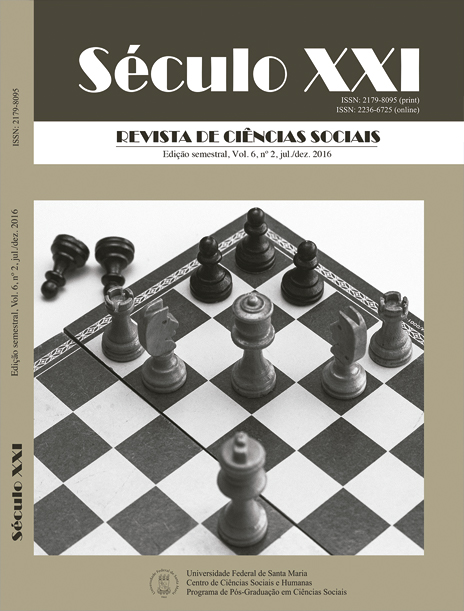Neither neo-liberalism nor developmentalism: State corporatism in Brazil from 1990 to 2014
DOI:
https://doi.org/10.5902/2236672526320Keywords:
Neoliberalismo, desenvolvimentismo, populismo, corporativismo estatal, irresponsabilidade fiscal.Abstract
This article intents to demonstrate that after 24 year since the first elected government after the military regime the economic models implemented in the country were not neoliberal nor developmental if considering their economic and social definitions. The governments sat on supposed neoliberal field (Collor, Itamar and FHC) from 1990 to 2002 in many times gave clear signs of idealism regression or political pragmatism by sponsoring populist policies or through a strong presence of the State in the economy. In the other hand, the rising of governments who self-declared center-left wings during the period 2003 to 2014, may not grant themselves the condition of developmental in a sense that such would imply a more active part of the State in the economy which ought to lead to a more sustainable economical growth. Although the State during this period continue to participate on the economical process it chose as its main political option the reduction of inequalities. Even though such actions were needed they’ve proven to be insufficient to take advantage of the favorable opportunity international situation offered to enter in a developmental cycle. This more populist option implemented a particular corporatist state and at the same time contemplated a certain dose of fiscal irresponsibility.Downloads
Downloads
Published
How to Cite
Issue
Section
License
Authors who publish in this journal agree with the following terms:
1. Authors keep the copyrights and allow the journal the right of first publishing, having the paper simultaneously licensed by Creative Commons Attribution License that allows the sharing of the article – copyright recognized - and first publishing in this journal.
2. The journal is allowed to require the copyrights transfer, allowing the article to be used under noncommercial purposes, including the right to send the paper to Free Access or Paid databanks, not assuming the obligation to pass on the value charged from users to the authors.
3. Authors are allowed to take additional contracts separately for nonexclusive distribution of the paper’s version published in this journal (e.g. publishing in institutional repository or as book chapter), recognizing the copyright and first publishing in this journal.







